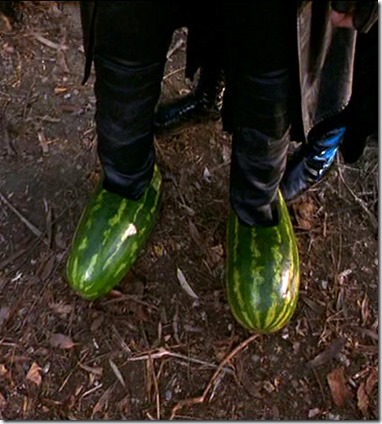 There is a phrase from the comedy, Mystery Men, that I think perfectly describes my relationship with the Lord. In the scene Ben Stiller, who plays Mr. Furious, is frustrated with the new leader of his ragtag band of superheroes, The Sphinx. The Sphinx majors in formulaic phrases like, “when you care what is outside, what is inside cares for you.” Or “He who questions training only trains himself at asking questions”.
There is a phrase from the comedy, Mystery Men, that I think perfectly describes my relationship with the Lord. In the scene Ben Stiller, who plays Mr. Furious, is frustrated with the new leader of his ragtag band of superheroes, The Sphinx. The Sphinx majors in formulaic phrases like, “when you care what is outside, what is inside cares for you.” Or “He who questions training only trains himself at asking questions”.
In one particular scene Mr. Furious, balancing a tack hammer on his head, questions The Sphinx’s methods. The Sphinx responds with another formulaic saying: “When you can balance a tack hammer on your head, you will head off your foes with a balanced attack.”
The camera then pans to Mr. Furious questioning why he is wearing watermelon on his feet. To this the Sphinx says, “I don’t remember telling you to do that.”
And there it is.
“I don’t remember telling you to do that.”
Wearing Watermelon Shoes
I wear watermelon shoes.
How many times have I set for myself an imaginary standard, failed to meet that standard, and then end up feeling guilty before a holy God for not accomplishing the goal that I set?
This is why a true understanding of the sufficiency of Scripture can be so helpful. I say “true understanding” because there is much being paraded around these days on the doctrine of sufficiency that is foreign to it’s historical meaning. I digress. One aspect of the doctrine of sufficiency is that we do not have the right to call something a sin which is not forbidden by Scripture either explicitly or by strong implication. And we are not required to do something unless Scripture requires this of us.
I want to finish 100 books this year. I believe reading good books helps me to grow as a person. I don’t know if I’ll make my goal, though. So, what happens if I don’t? Track the logic here:
A. Reading good books helps you grow as a person.
B. God desires for you to grow
Therefore: God desires you to read good books
Okay, maybe.
A. The more you read the more you’ll grow
B. Reading 100 books is a good goal
C. God wants me to be faithful and have integrity in accomplishing my goals.
Therefore: God wants me to read 100 books this year.
That’s simply horrible logic. 100 is an arbitrary number. There is nothing in Scripture that defines these parameters. God wants us have integrity in our person and to be consistent in obeying his law, and not the ones we make up for ourselves.
I can picture it now. I take my reading list to God at the end of the year and say, “I’m sorry that I didn’t get to 100. Please forgive me.”
And God responds, “I don’t remember telling you to do that.”
Freedom
It’d be helpful to kick off those watermelon shoes. What areas in your life do you feel a weight of guilt? Is that because of something which God has explicitly stated and you are falling short in this area? If so, repent and believe the gospel. Trust in Jesus for healing, change, and forgiveness.
What if you are breaking rules that you’ve made up? What if the shame and guilt that you feel is not imposed by God but instead by either your own standards or that placed upon you by the world? It wouldn’t be uncommon for you to be carrying this weight. Consider these words of Jesus:
“Come to me, all you who are weary and burdened, and I will give you rest. 29 Take my yoke upon you and learn from me, for I am gentle and humble in heart, and you will find rest for your souls. 30 For my yoke is easy and my burden is light.” Matthew 11:28-30 NIV
If his yoke is easy and his burden is light and yet we are weary and burdened it has to mean that we’re loaded down by things that we aren’t supposed to be. We’re trying to run the race with watermelon shoes.
So, kick those off today and rest in His finished work.
 Trigger warning: sexual abuse
Trigger warning: sexual abuse
 When I was a little boy, and reader I mean little boy, I was at the park playing basketball by myself. A group of bigger kids came and took my basketball and started playing a game, quickly edging me to the sidelines. I think I just accepted it. “This is your place,” I told myself in ways a child communicates to his own soul.
When I was a little boy, and reader I mean little boy, I was at the park playing basketball by myself. A group of bigger kids came and took my basketball and started playing a game, quickly edging me to the sidelines. I think I just accepted it. “This is your place,” I told myself in ways a child communicates to his own soul.